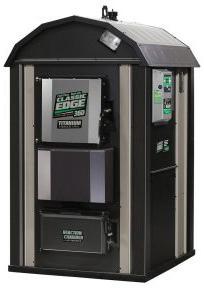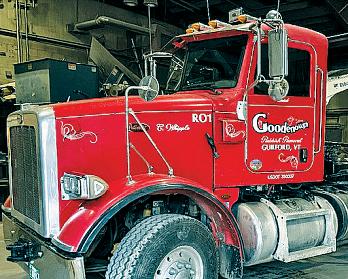








A sense of pride comes from a successful do-it-yourself home improvement project. However, quite often inexperience and time constraints lead homeowners to turn to professional contractors to make sure jobs get done correctly and on time.

Allied Market Research reported in 2021 that the home improvement services market is predicted to reach $585.3 billion by 2030. The following are some reasons why renovation-minded homeowners benefit from the services of professionals.
• Tasks can be overwhelming: A home remodel is a large undertaking with many different steps. Contractors who have been around the block a time or two understand how to organize and manage time to get the job done. Plus, they’re devoting all of their attention and time toward the remodel when on the job.
This differs from when a do-it-yourselfer tries to work on a remodel in between other responsibilities.
• Network of suppliers: A good general contractor will have a list of material suppliers he or she routinely uses. Often contractors become preferred sellers, which means they get a lower wholesale rate, and will often pass those savings on to the customer.
• Licensed and bonded protection: Licensed and bonded contractors not only have the skills for the job, they have insurance protection behind them. Therefore, if an injury occurs or the job goes awry, the homeowner will be protected from liability. A license means the contractor will have to uphold licensing standards, which could mean staying current on trade practices and skills.
• Expertise: Experienced contrac-




tors have done the work they have been hired to do many times, which means their skills are fine-tuned. Knowing the correct way to do a job results in fewer errors (and thus fewer repairs), shorter time periods to get the work done, and potentially lower costs overall.
• Frees up time: Homeowners who hire out for remodels can utilize their time in other ways, such as on the job or spending time with family.
• Reduces stress: Putting the work in
capable hands means homeowners do not have to educate themselves about how to do the task, purchase tools, prevent injuries, and/or deal with potentially negative outcomes. Certainly having extra people in the house can be challenging, but it may not equal the stress caused by tackling a job on one’s own.
There are many advantages to hiring contractors to renovate a home instead of taking the DIY route.

The last few years have not proven the most advantageous times for new car buyers. According to the Consumer Price Index Summary from the United States Bureau of Labor Statistics, buyers paid 12.2 percent more for new vehicles in January 2022 than they had in January 2021. Faced with such a significant increase in price, many drivers understandably want to keep their current cars longer than they might have initially planned.


Data released by S&P Global Mobility in early 2022 indicated that the average vehicle on the road is 12 years and two months old, which marked the highest number in the 20-plus years such information was tracked. A host of variables affect how long drivers keep their cars, but the rising cost of new vehicles has undoubtedly compelled many drivers to aspire to keep their cars for longer periods of time.
Aging cars may require a little more TLC than vehicles that are right off the dealership lot. But the following are three simple tips that can help drivers keep their cars running longer.
1. Become a more careful driver. A careful approach when behind the wheel is safer than aggressive driving and beneficial for your vehicle. When starting, avoid revving the engine, which needlessly wears it down. When out on the road, avoid rapid accelerations, which also contributes to needless wear and tear. Even excessive idling can adversely affect the engine, so keep winter warm-ups to around 30 seconds to prevent damage to engine components.
is busily filling the tanks. That’s traditionally been considered a less than ideal time to fill up, as the theory is that filling the tanks stirs up sediment that could then find its way into consumers’ gas tanks, adversely affecting their vehicles. However, that’s often dependent on the station itself and how much its owners prioritize maintenance of the tank and filtration systems. Drivers who trust their local station owners can likely fill up when

filling up. The U.S. Environmental Protection Agency notes that topping off is harmful to the planet and the vehicle, as gasoline needs room to expand. When you top off, the extra gas may damage the vapor collection system and cause the vehicle to run less efficiently.
3. Change oil more frequently as the vehicle ages. It’s true that modern vehicles no longer require oil changes for every 3,000 miles driven.

However, as vehicles age, drivers and t from more frequent oil changes than the owner’s manual necessarily recommends. Oil changes remove dirt and metal particles from the engine, potentially contributing to a longer life expectancy. More frequent changes can be especially beneficial for vehicles that are routinely driven in stop-and-go traffic.
Rising vehicle costs have compelled many drivers to keep their cars longer than they initially planned. Some simple strategies can help drivers achieve that goal.


Spring marks the return of lawn and garden season. Lawns often bear the brunt of winter’s wrath, so spring is a great time to nurse them back to health, and fertilizing can be an essential component of that process.
Fertilizing a lawn can be intimidating. An array of fertilizers, with each seemingly designed to address a different issue, can make homeowners’ heads spin when visiting their local lawn and garden center. However, fertilizing is a very simple task that any homeowner can tackle. In fact, fears

is a very simple task that any homeowner can tackle
about fertilizing are often unfounded and can be overcome with some basic knowledge of the process.




• Identify which type of grass is in the yard. The home improvement experts at HGTV note that turfgrass is divided into two categories: cool-season grass and warm-season grass. A local lawn and garden center can help homeowners identify which type of grass is in the yard, and this often depends on location. Fescue, bluegrass and perennial ryegrass are some examples of cool-season grasses, while Bermuda, bahia, St. Augustine, and zoysia are considered warm-season grasses. Identifying which type of grass is in the lawn is important because that will indicate when to fertilize. Cool-season grasses are typically best fertilized in early spring, while warm-season lawns can benefit from an application just before especially warm temperatures arrive.
• Survey the lawn to identify which spreader to use. A small yard or a thriving lawn with only a few bald or unsightly patches may not need a full application of fertilizer. In such instances, a hand spreader can suffice. For larger lawns and areas, a broadcast spreader is the ideal option. Spreaders have multiple settings, and the fertilizer package will indicate
which setting to utilize when using the product.
• Test the soil prior to purchasing fertilizer. The lawn experts at Pennington® note that a simple soil test can reveal soil pH and phosphorous and potassium levels. Soil tests can be purchased at most home improvement stores and lawn and garden centers, and they can help homeowners determine which fertilizer will most benefit their lawns.
• Water the lawn prior to fertilizing. The experts at Scotts® recommend a good watering a few days prior to fertilizing a lawn. Such an approach ensures the soil is ready to accept the fertilizer once it’s applied.
• Follow the instructions carefully. Detailed instructions are typically provided on fertilizer product packaging. Once homeowners have identified and purchased the product they need, they can simply follow the instructions on the packaging, including how and when to water after application, which can make fertilizing less intimidating.

Fertilizing in spring can help a lawn recover from the previous summer and winter, ensuring it’s lush and green when summer entertaining season arrives.





Homeowners have many options at their disposal if they want to improve their homes. A focus on the exterior can be a promising and rewarding way to direct renovation dollars.
Curb appeal has a significant impact on how a home is viewed. Manicured landscapes, updated windows and doors and well-lit landscapes can improve the value of a home and ensure it sells quickly and above market rate.
When homeowners assess items they may want to change, shutters can be an area of consideration. Shutters can help windows look a little less plain. In most modern residential properties, shutters are purely decorative. However, their roots lie in home protection. Originally, shutters were used in lieu of windows so they were the only way to safeguard

a home’s interior from the elements. Some shutters still offer that protection, but those typically are installed on homes in hurricane-prone areas. Window shutters lend a finished and distinctive look to a home. When shopping for shutters, individuals can choose among various styles.

• Louvered: A louvered shutter features several wood slats that overlap each other on the same frame. A typical louvered shutter features two sets of slats separated by a center rail. Some functional louvered shutters are operational, meaning the slats can be tilted to allow air to flow through. But this is something typically reserved for indoor shutters. Decorative ones have fixed slats.
• Panel: Panel shutters come in different styles. Raised panel shutters pres- not raised. Recessed panels are the op-
posite of raised panels. As their name suggests, recessed panels are set back
Board and batten shutters are formed from grouped single boards joined together with


Window shutters lend a finished and distinctive look to a home
shorter crosspieces of wood called battens. Battens are positioned horizontally or at an angle. These shutters have a more informal, rural feel.
• Bahama/Bermuda: These tropical-inspired shutters are of the louvered variety, but they’re installed from the top of the window rather than on the sides.
• Scandinavian: Scandinavian series shutters are very decorative board and batten shutters. They feature a series of cutouts and designs.
• Combination: Some shutters offer the best of both worlds, with louvered on top and a solid panel on the bottom, or vice versa. This gives homeowners infinite options.
Shutters are available in various materials. The most common include wood, vinyl and composite. Cedar, mahogany and pine are commonly used woods for exterior shutters. Vinyl is more economical and lightweight, but they can be challenging to clean and do not offer the longevity of other materials. Composite shutters are durable and cost less than wood in most cases.

Color is another consideration when replacing shutters. Shutters can stand out or blend in with the siding and other architectural accents. Shutters also can flank a front door to fully complete an exterior look.

Automotive problems are often best left to professionals. Though seasoned car enthusiasts may be capable of diagnosing and fixing car troubles without the assistance of a trusted mechanic, most drivers are better off letting the pros address issues under the hood.
But drivers can still play a vital role in vehicle maintenance. Learning to recognize warning signs of various problems that can affect cars can prevent breakdowns and potentially costly repairs. And in certain instances, such as when the brake system is not working properly, knowing how to spot problems before they escalate into something larger can make drivers and their passengers safer and potentially prevent accidents.
Television shows and movies have lent credence to the notion that brake problems are marked by the sudden cessation of a vehicle’s ability to stop. Though that can happen, warning signs of fading brake systems tend to be more subtle.
• Noises: Much like a knocking sound typically indicates a problem with a vehicle’s air-fuel ration mixture, certain noises also suggest there are problems with the brakes. The most noticeable such sign is a high-pitched squeal that occurs when drivers apply the brakes. But grinding sounds and noises like scratching and scraping also warrant a visit to a brake specialist.
• Increase in stopping distance: An increase in the distance a vehicle travels before it stops after the brakes are applied indicates that there’s an issue with the brakes. This issue may or may not require a brake replacement. In fact, it’s sometimes indicative that brake fluid levels are low, which can be remedied quickly and easily. However, an increase in stopping distance is significant enough that it should be brought to the attention of a brake specialist immediately.


• Pulling upon stopping: Another warning sign of brake problems is when the vehicle noticeably pulls to one side as it comes to a stop. This indicates that one side of the brakes is malfunctioning while the other is working properly. Like other issues with brakes, this one requires immediate attention from an automotive professional.



Brake systems should be inspected during routine maintenance visits. But issues with brakes can arise even after such inspections, which underscores how important it is that drivers learn to recognize the warning signs of brake problems.


awardwinningcabinetsforthewholehousefor nearly40years.Whetherfullycustomorvalue engineeredcabinetstheyarealwaysbuilttoyour specifications.Weblanketwrapthemfordeliveryin atimelymannerandonbudget.
Calloremailtovisitourfactoryshowroomand meetourcabinetprofessionals.
Automobiles have come a long way since their introduction more than 100 years ago. Though modern cars and trucks still employ some of the same principles as their forebears, the vehicles people drive today bear little resemblance to those that made waves in the early part of the twentieth century.
Modern automobiles are technological marvels, which has made both driving and maintaining a vehicle much simpler. In regard to maintenance, built-in diagnostic systems can now alert drivers when something is wrong with their vehicles. Though that feature is undeniably useful, drivers can still benefit from learning to recognize issues by ear. Many issues that can affect a car or truck produce unusual sounds, and learning what certain noises may indicate can help drivers detect problems as soon as possible.
• Rattling sound in a wheel well: Most people have mistakenly placed clothing in a dryer without realizing they had spare change in their pockets. That mistake is immediately apparent once the dryer starts thanks to the unpleasant noise of coins bouncing off the interior of the machine. Drivers may hear a similar sound when behind the wheel and wonder what’s behind it. Such a sound is often indicative that there’s a loose lug nut inside the hubcap. This issue can arise when drivers don’t tighten the wheel properly after changing their own tire, or if mechanics make the same mistake when rotating or replacing tires during a routine maintenance session.
• Squeaking sound: The auto insurance experts at GEICO® note that rear-wheel or four-wheel drive vehi-
cles may produce a rhythmic squeaking sound when an issue arises with the universal joint. JD Power notes that the universal joint, often referred to as a U-joint, is part of the system that enables the rotating crankshaft in the engine of a vehicle to transfer that rotating motion to the rear wheels. U-joints get a workout whenever vehicles are driven, so they require maintenance, and a squeaking sound is one indicator that the U-joint needs to be addressed immediately.
• Squealing sound: A high-pitched squealing sound is typically indicative of worn out brake pads. However, Cars.com notes that if such a sound is only present when a car is first driven in the morning, it could just be surface rust being scraped off the rotors. After a few initial applications of the brakes, that sound might disappear. If it doesn’t, the vehicle will likely need new brake pads.
• Scraping on the windshield during rain: The scraping sound on a windshield when the wipers are in use should not be taken lightly or be interpreted as a sign that the rain is only falling slightly. In fact, that sound indicates the wipers are worn out, which means they’re not effectively clearing the windshield. In addition, the wipers could be scratching the windshield each time they produce this sound, ultimately necessitating a costly windshield replacement. Wiper blades can be replaced in a matter of minutes, so address this issue promptly.
Learning to recognize the culprits behind various noises can help drivers nip problems in the bud before they compromise the automobile and the safety of the people inside it.

Homeowners who decide to renovate one or more rooms in their homes may be excited about the changes that are in store. Even simple modifications to paint color or accessories can change the look of a space. Larger renovations can produce even more dramatic effects.
When contractors provide cost estimates, they may predict how long they expect the job to take from start to finish. It is impossible to plan for every scenario, however. Jobs may be delayed for various reasons, and it’s rarely the fault of the contractor. Here are some reasons a renovation could experience snags along the way.
• Preexisting conditions: Opening up walls or removing flooring could reveal hidden problems. These include prior insect damage, leaks and water issues, asbestos, mold, or even pests. The presence of unforeseen issues will require remediation that can extend the project timeline.

• Schedule backup: Contractors often have busy schedules. When one job experiences delays, that causes a domino effect on others on the calendar. Homeowners should realize that the estimated start date of their own project is just an estimate and not necessarily set in stone.

• Lack of materials: Builders sometimes have difficulty procuring materials from vendors. Whether it’s con-


crete or a special-order appliance, the contractor is at the mercy of the vendor. If there are shipping delays or other issues, the job will have to be pushed back. Many steps to a project hinge on the one before. For example, walls cannot be put up until electrical work and plumbing has been completed.
• Prior errors: Corrections may need to be made to what a previous contractor or even the homeowner did. Problems need to be fixed or they may compromise the look and safety of the project. Issues may arise if prior renovations were not done to code.
• Obtaining permits: The application process for obtaining permits can take anywhere from a few weeks to a few months depending on the municipality and the scale of the project. Long permit lead times can delay the start of the job.
• Weather: Mother Nature can affect everything from the availability of materials to the job itself, particularly if work is being done outdoors.


• Finances: The overall cost of the job may change, especially if issues arise during the work. If funds dry up, the project may stall.
Certain factors can affect how long a renovation project will take. Homeowners should know that timelines are estimates and not set in stone.
A lush, green lawn is a point of pride for many homeowners. Eye-catching landscaping anchored by a healthy lawn is one of the key ways to improve the value and curb appeal of a home. In fact, the experts at HGTV say an attractive and well-maintained landscape can add as much as 10 percent to the value of a home.
Maintaining a thriving lawn takes effort, and that means recognizing when the green in the yard may not necessarily be coming from soft blades of grass. Invasive greenery, including moss, can infiltrate a lawn and that can be problematic if left unaddressed.
A mossy lawn is a sign that certain conditions are ripe for the moss, but not necessarily the grass, to grow. According to Lowes, moss thrives in certain conditions, which should be addressed if homeowners hope to corral it.
• Moss does well in acidic soil, more so than traditional grasses. A soil






test can confirm if the pH needs to be adjusted to make it more hospitable to grass and less friendly to moss.

• Compacted soil and excess thatch can make it easier for moss to take root. These conditions also can make the soil damp and restrict drainage, something that promotes moss growth.

• Moss can grow in shady conditions. If patches of the lawn have been overrun by moss, there could be too much shade in the area. Trimming back trees or shrubbery may help; otherwise, homeowners may need to look into hardscape or plants that thrive in such conditions to remedy shady and damp areas on portions of their landscapes. Moss typically can be removed the same way one would dethatch a lawn. It involves rigorously raking or agitating the lawn to loosen the moss. This can be done by hand with a rake, or in the case of a lot of moss
or a large lawn, with a dethatching blade attachment for a lawn mower. Aerating the soil will help keep moss that was removed from returning. In addition, amending the soil so that it has a more dense nutritional profile by adding compost, as well as improving drainage and adjusting the pH, are keys to keeping moss from returning.

For pesky moss, The Spruce suggests making a solution of one box of baking soda to two gallons of water and spraying this solution on the





patches of moss. It is a natural alternative to using chemical products. Certain sources indicate a glyphosate herbicide could work on moss, but the World Health Organization considers glyphosate to be a probable human carcinogen and it is prohibited in certain areas.
Moss may be green, but it’s often not the type of green homeowners desire in their lawns. Learning about moss can help when removing it and preventing it in the future.

Car accidents occur every day. According to data from the National Highway Traffic Safety Administration, there are more than five million car accidents in the United States every year. Forty-three percent of car accidents resulted in injuries in 2020.


No one wants to get into an automobile accident, which can be stressful and even fatal. Even accidents that do not result in any major injuries can be traumatizing. Knowing what to do in the immediate aftermath of an accident may make such instances less stressful.
The insurance experts at GEICO® advise individuals involved in an accident to first determine if any of the involved parties suffered an injury. If you are injured, stay put. If not, check on the condition of the other driver. At this point do not admit any fault or reveal any policy limits.
Next, make a call to emergency services to request assistance from the police and an ambulance, if necessary.
If possible, pull the vehicle over to a safe, well-lit public location. This is especially important if you believe you were the victim of a staged accident, says the Insurance Information Institute. If the car will cause another road hazard, it is best to move it over to the side and use
flashers to alert oncoming traffic. It is important that you don’t leave the scene, according to American Property Casualty Insurance Association.
Have the police write up an accident report. You should take pictures of the damage to your vehicle, the other vehicle, if possible, and the scene of the accident, including any skid marks, debris and/or property damage. If there are any witnesses to the accident, get their names and contact information. You’ll need this information when filing an insurance claim.
Collect the names, phone numbers, addresses and email addresses of other drivers and vehicle occupants and exchange insurance information with all drivers involved.
That includes the insurance company name, policy number and the name of the insured.
Notify a friend or family member
Even if the accident is not serious, you may want to call a friend or family member to provide emotional support. If you’ve been injured, a friend or family member can meet you at the hospital and/or arrange to have your vehicle towed or returned home while you get the care you need.

Automotive accidents can be nerve-wracking. Knowing the steps to take can alleviate some stress.




